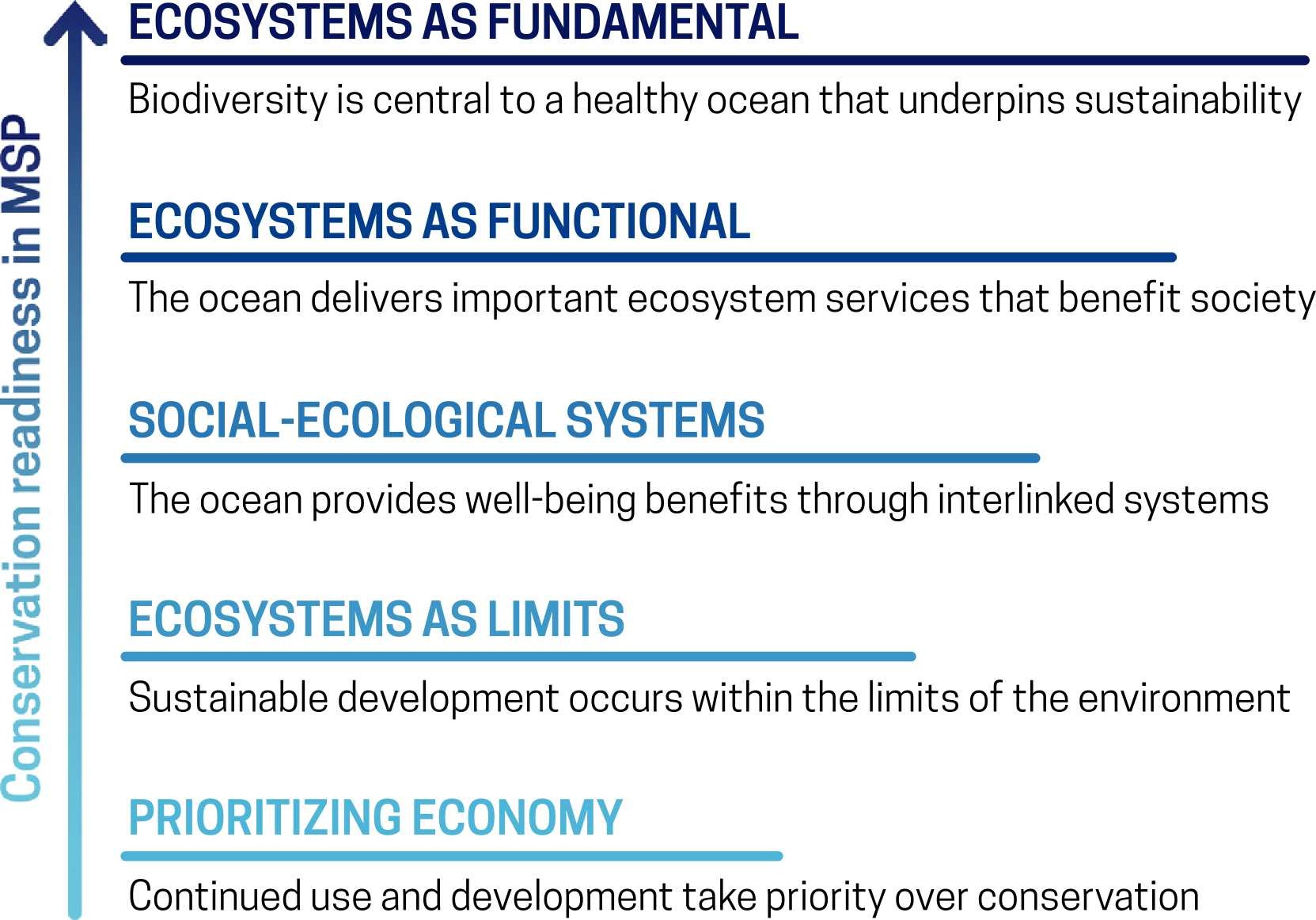- Unknown label
- Unknown label
- Unknown label
- Unknown label
What about conservation in MSP?
-
On 21 September 2023false false
This study explores how conservation principles and priorities are included in marine spatial plans, and how this might help to inform more integrated marine spatial planning that balances objectives for marine protection, sustainable use, and sustainable development.
As an ecosystem-based process, it is reasonable to assume that marine spatial planning and marine protection are related. Marine spatial planning should prioritize ecosystem function and health, so conservation should play an important role in the process. While key guidance for marine spatial planning advocated for this relationship, and existing literature had explored marine spatial planning initiatives to better understand priorities and practices in this process, no study had yet to broadly assess how conservation has been included in marine spatial planning practice.
This study explores how conservation principles and priorities are included in marine spatial plans, and how this might help to inform more integrated marine spatial planning that balances objectives for marine protection, sustainable use, and sustainable development.
The authors used in-depth document analysis of five international marine spatial planning case studies. Through qualitative coding, the process of organizing and labeling passages of text, they conducted a themes analysis to describe how conservation has been included in marine spatial planning and to identify a path forward to support ocean planners. While many studies have explored the complex relationships between marine spatial planning and marine protected areas, their study was novel in its in-depth qualitative approach to understanding how key concepts in conservation have been captured in marine spatial plans.
Their analysis revealed that some marine spatial plans appear more prepared to integrate conservation than others – especially those that viewed ecosystems as fundamental or functional for sustainable ocean use (see figure 1). With this approach, they could understand more inductively how conservation has been included in marine spatial planning initiatives. This gave them a new lens for providing recommendations, and the call for conservation ready marine spatial planning.

Figure 1 : Vision de la conservation dans la planification spatiale maritime
As part of the recommendations, they proposed the need for conservation ready marine spatial planning, where plans are designed to integrate conservation in marine spatial planning through use of conservation principles and priorities. By being more conservation ready, marine spatial planning can deliver its promise as a holistic process that recognizes the fundamental role of biodiversity conservation in ocean sustainability.
Link to the article : https://www.sciencedirect.com/science/article/pii/S0308597X23001823?dgcid=coauthor#fig0015
Rodolphe Devillers is a research director at IRD.
Brice Trouillet is a university professor at the laboratory LETG-Nantes.
Nathalie Ban is a professor at the university of Victoria (Canada).
Tundi Agardy is the founder of Sound Seas.
Joachim Claudet is a senior Researcher & Ocean Advisor at CNRS Centre de recherches insulaires et observatoire de l’environnement (Criobe, CNRS/EPHE-PSL/Université de Perpignan Via Domitia).
Profile of the first author

Julie Reimer began her studies in the biological sciences. It allowed her to build a strong understanding of ecosystems, how they work, and how they need to be protected. Then, she transitioned to social and applied sciences, doing research that explored the receptiveness of marine industry members to emerging conservation technologies. With this interdisciplinary background, she completed a PhD in Geography at the Memorial University of Newfoundland and Labrador (Canada) in 2022, focusing on amplifying the potential of marine spatial planning for conservation and sustainability. She now works in Canada’s national marine spatial planning program as a Team Lead and Senior Advisor which allows her to contribute to building Canada’s marine spatial planning processes in a way that reflects international best practices, scientific recommendations, and bold ambitions for a healthy and sustainable ocean.
She is currently in the final stages of publishing her last PhD chapter: a user-friendly tool for assessing marine spatial planning initiatives relative to fundamental principles for marine spatial planning. In parallel, she is also collaborating on research projects exploring conservation objectives across ocean legislation and regulations; the adaptive capacity of other effective area-based conservation measures; and advancing climate-smart ocean planning.
With a diversity of perspective and experiences, this study reflects an approach to research that crosses disciplinary boundaries to ultimately deliver a clear call for action within the field and practice of marine spatial planning. The co-authors provided Julie Reimer with mentorship and added their own expertise to the final published manuscript, resulting in a clear proposal for conservation ready marine spatial planning.
“I’ve been fortunate to work with many brilliant scientists in my early career, and this collaboration was no exception! I am grateful to have had their support and to have felt like a colleague rather than a trainee throughout the process.”

